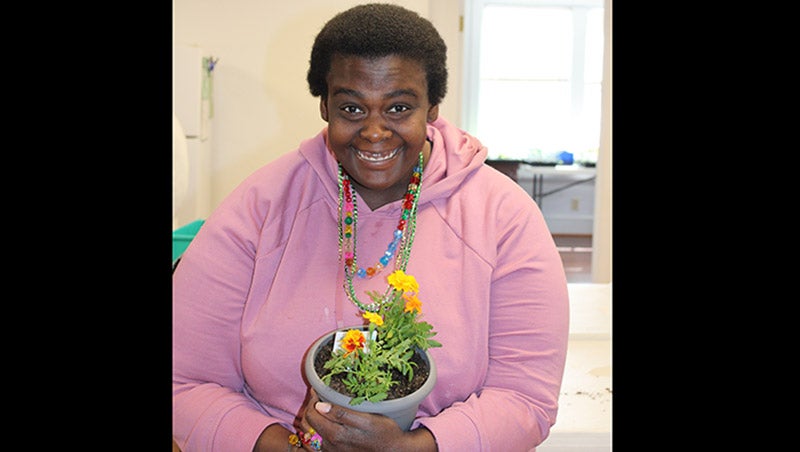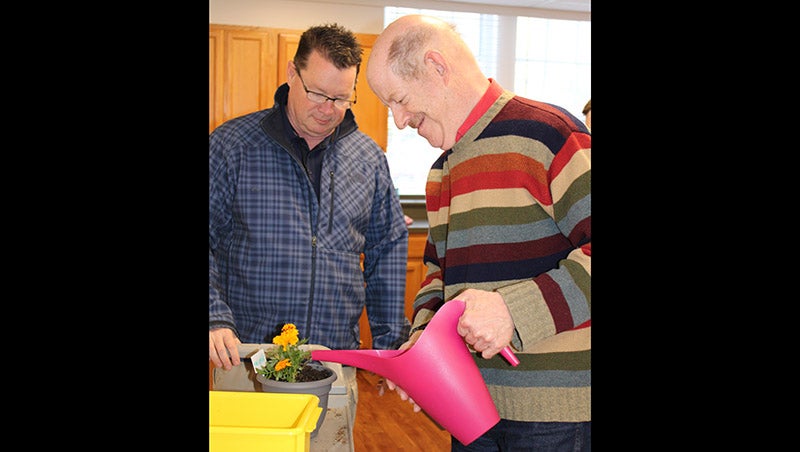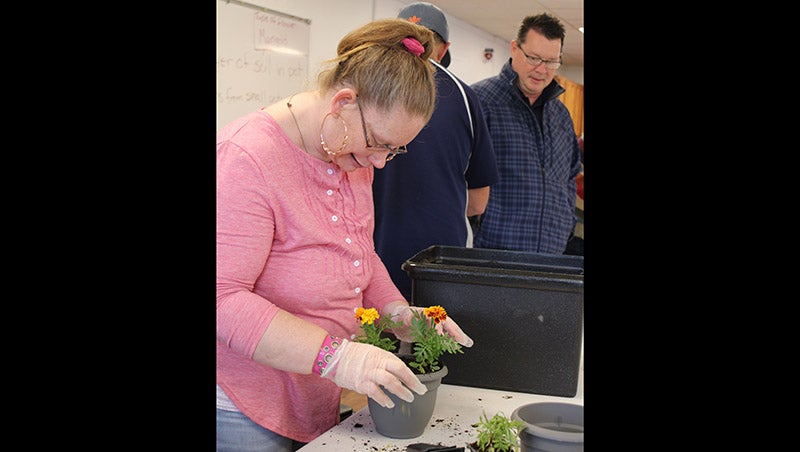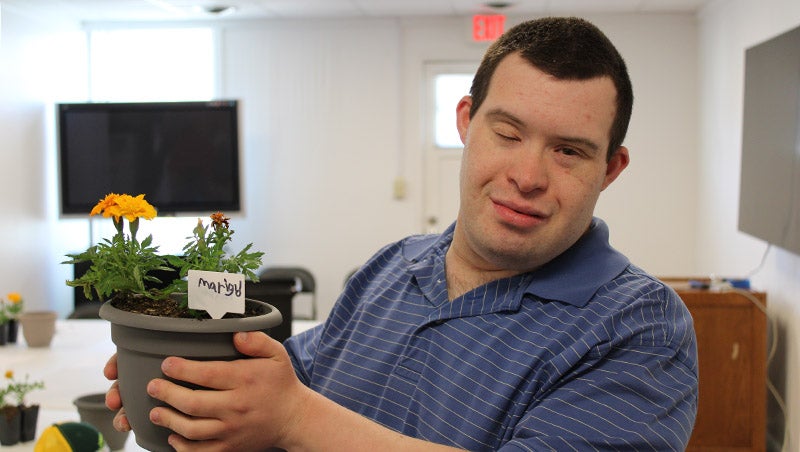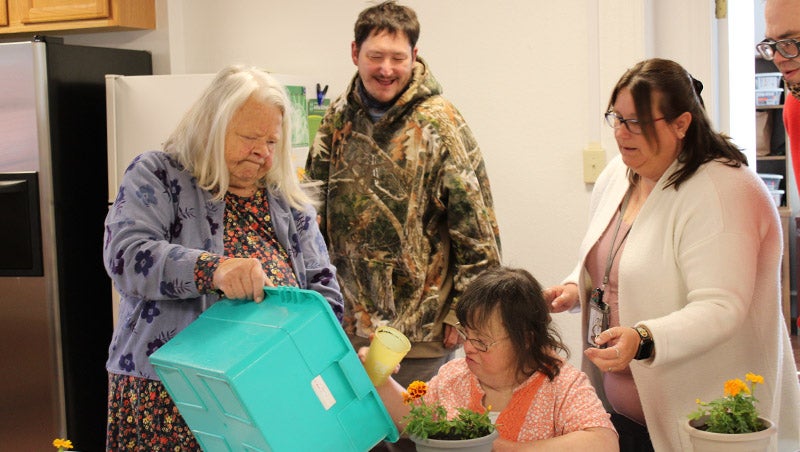Horticulture program serves a higher purpose
Published 8:16 am Thursday, June 2, 2022
|
Getting your Trinity Audio player ready...
|
It’s a Wednesday morning at the North Carolina Cooperative Extension Office in Manteo and Dare County director Tanya Lamo has set up the conference room for her guests. At each place at the table there are two marigold plants and a small pot, and at the head of the table are several large containers of potting soil and a watering station.
About a dozen individuals from The Monarch Beach Club, which serves people with developmental and intellectual disabilities, arrive promptly at 9 a.m. offering hugs and big smiles.
Lamo directs them to take a seat and explains the morning’s project. Whereas last time the group planted seeds to donate to children at an upcoming Extension event, this time, Lamo says, “you get to pot marigolds for yourself to take home and enjoy.”
Explaining each step carefully and demonstrating the instructions, Lamo then encourages the group to add dirt to their pot, place the flowers carefully inside, add a little more soil and top it off with fresh water.
Mornings like this happen once or twice a month at the Extension office at 517 Budleigh Street. Lamo started the therapeutic horticulture program last fall as a way to reach out to an underserved population.
“I’ve always liked to work with individuals with special needs,” she said. “Personally, I find great joy in plants. To be able to share that with people, to see how it impacts their self worth, is amazing. I reached out to The Monarch Club about the idea and they were really excited about it.”
One of her goals is to have a team of master gardeners who can offer therapeutic horticulture programs. Though no one in the group is certified in therapeutic horticulture, Lamo has been involved in the concept and working with youth and adults with mental health needs since her graduation from college.
“I partnered with community colleges and did teaching and hands-on education. I worked in the high school with people with behavioral issues and we did landscaping, floral design, all sorts of things. The programs teach fine motor skills, and really create a sense of purpose. It’s restorative. It helps to build life skills, or even process a loss. Some people will build a memory garden for a loved one,” Lamo said.
Even though Lamo and the volunteers at Extension want to serve the people at the Monarch Beach Club, the club members find joy in serving others! “I like making things like cards at the Dare Center for people who don’t get out much, to make them happy. I like making plants and donating to them,” said Christine as she added soil to her marigold plant.
Gina shared what kind of plants she enjoys: “I like tulips and lilies and roses and violets,” she said. “And marigolds!” She was sure show off her completed project and smiled proudly as her photograph was taken.
For many gardeners, Steve’s statement rings true: “I like to see things grow. They’re pretty,” he said with a smile.
As the morning’s program concludes at about 10 a.m., the group members finish their snack and say goodbye until next time.
“They are just the coolest group of people,” Lamo said. “It’s really fun.”
For information on how to participate or volunteer with the therapeutic horticulture program, contact Tanya Lamo at telamo@ncsu.edu.
Editor’s Note: This article originally appeared in our Outlook edition for 2022: Hands, Land & Sea. To read more articles from that special publication, check it out online here, look for a copy at a select locations throughout the Outer Banks or contact our office at 252-473-2105.
CHECK OUT OUR DISASTER PREPAREDNESS GUIDE FOR 2022 HERE.


